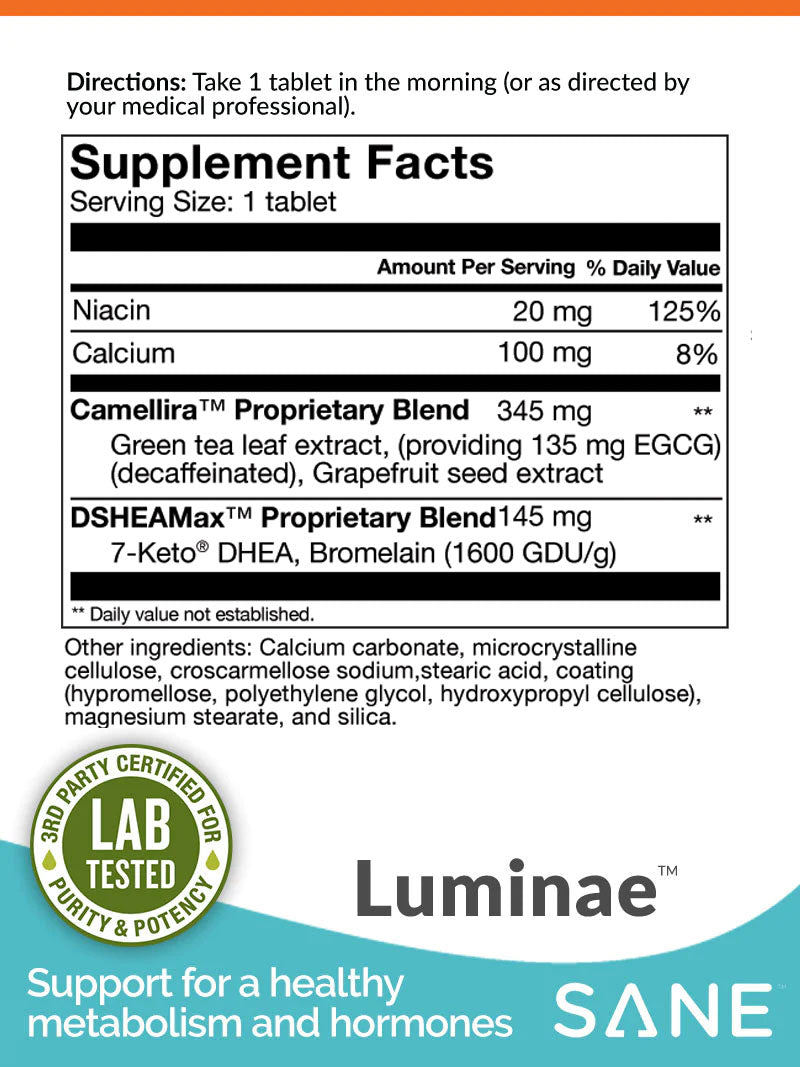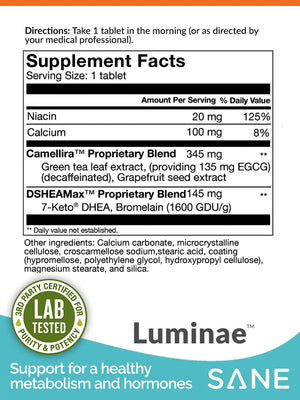



Luminae™
$47.00 $69.95 You save: 32% $22.95
Weight loss support. Trusted by fitness models, proven by research.
- Ingredients found in Luminae™ lead to more weight loss (when combined with SANE eating and exercise) than a placebo.
- May help to support burning fat for energy instead of storing it.
- No-stimulant formula.







A Natural Weight Loss Catalyst
Increase your fat burning up to 300% with this clinically proven formulation1

achieve your
weight goals
- Suppress cravings for junk food and eat healthily
- Support optimal thyroid function
- Adopt a SANE eating and exercise plan
1 - Research Citation: Douglas S.Kaiman, Carlon M.Colker, Melissa A.Swain, Georgeann C.Torina, QiuhuShi A randomized, double-blind, placebo-controlled study of 3-acetyl-7-oxo-dehydro epiandrosterone in healthy overweight adults.
heal your metabolism

Green Tea Leaf Extract is an anti-oxidant and helps boost your metabolism for quick fat loss.

Grapefruit Seed Extract contains powerful anti-oxidants that can protect your body from oxidative damage.

7-Keto DHEA supports your thyroid to increase metabolism.
Please note: the Reviews widget below is powered by a 3rd-party and we do not control its accessibility features. If you need assistance with this content, please contact us at (347) 979-1735 and we will promptly work with you. We are in communication with this vendor to bring their widget into WCAG 2.1 compliance.






























